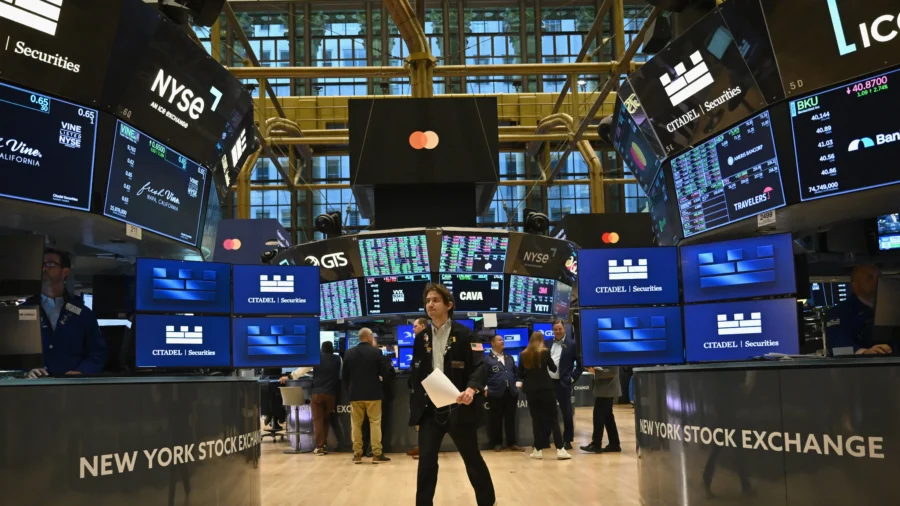NEW YORK/LONDON—MSCI’s global equity index was down slightly on Tuesday and the U.S dollar rose after U.S. President-elect Donald Trump’s pledge to put tariffs on all imports from Canada and Mexico, and extra tariffs on China.
The dollar rose against the Mexican peso and Canadian dollar after Trump, citing concerns over illegal immigration and illicit drug trading, said he would put a 25 percent tariff on products from Mexico and Canada, and an additional 10 percent tariff on goods from China. He had previously threatened to slap tariffs in excess of 60 percent on Chinese imports.
But on Wall Street the S&P 500 and the Nasdaq were up on the day as Michael O’Rourke, chief market strategist at JonesTrading said that regarding the tariff threats, “whatever winds up happening isn’t usually what the first opening offer was.”
“Investors are for the time being not quite as concerned as it would’ve appeared on the initial headlines. It’s a long way before anything is passed and Trump is giving these countries time to adjust before he takes office,” said O’Rourke.
On Wall Street at 11:17 a.m., the Dow Jones Industrial Average fell 222.02 points, or 0.49 percent, to 44,516.82, the S&P 500 rose 14.22 points, or 0.24 percent, to 6,001.59 and the Nasdaq Composite rose 79.71 points, or 0.41 percent, to 19,133.64.
MSCI’s gauge of stocks across the globe fell 0.73 point, or 0.09 percent, to 857.02. Europe’s STOXX 600 index was down 0.56 percent after earlier falling 0.7 percent.
However, U.S. Treasury yields rose on Tuesday, as Monday’s sharp bond rally lost momentum as the tariff announcement undid some of the investor optimism from Trump’s selection late last week of Scott Bessent as Treasury secretary.
“It’s almost as if Trump wants to remind markets who is in control, after nominating Scott Bessent as Treasury Sec—a man markets expected to cool Trump’s potency,” said Matt Simpson, senior market analyst at City Index.
The yield on benchmark U.S. 10-year notes rose 5.5 basis points to 4.318 percent, from 4.263 percent late on Monday while the 30-year bond yield rose 4.6 basis points to 4.4932%.
The 2-year note yield, which typically moves in step with interest rate expectations, rose 3.7 basis points to 4.289 percent, from 4.252 percent late on Monday.
In currencies, the Mexican peso weakened 1.73 percent versus the dollar to 20.698 and the Canadian dollar weakened 0.64 percent versus the greenback to 1.41 per dollar.
The Chinese yuan weakened 0.21 percent against the greenback to 7.26 per dollar.
But against the Japanese yen, the dollar weakened 0.4 percent to 153.6 after initially strengthening against the currency following Trump’s tariff remarks.
Oil prices rose on Tuesday as investors eyed OPEC+ discussions on output and weighed the potential impact of Trump’s planned trade tariffs on Mexico and Canada.
U.S. crude rose 0.87 percent to $69.54 a barrel and Brent rose to $73.56 per barrel, up 0.75 percent on the day.
Bitcoin fell 0.38 percent to $93,331.00, adding to Monday’s losses after last week hitting a record high at $99,830. The token had benefited from speculation of an easier regulatory environment for cryptocurrencies under Trump.
In precious metals, gold prices were caught in a tug-of-war, dipping to a week low as safe-haven demand softened on optimism over a potential Israel-Hezbollah ceasefire, while concern over Ukraine and Trump’s tariff plans added some support.
Spot gold rose 0.19 percent to $2,630.12 an ounce.
By Sinéad Carew and Amanda Cooper

